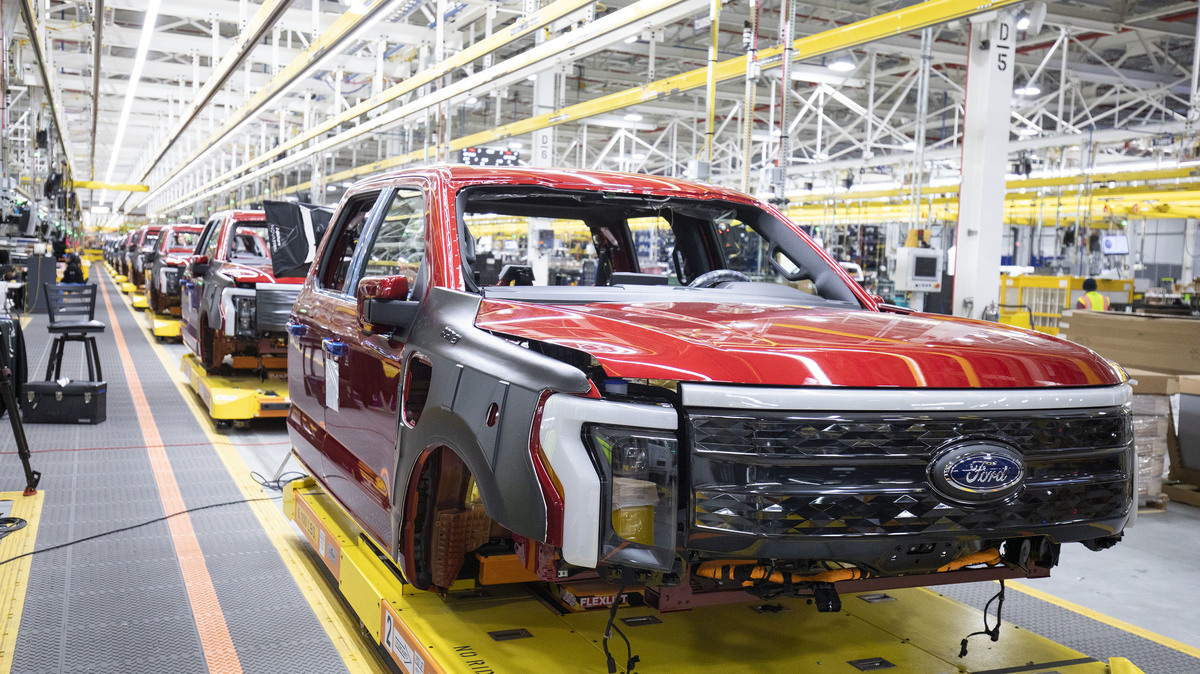
Ford F-150 Lightning pickup trucks sit on the production line at the Ford Rouge Electric Vehicle Center on April 26, 2022 in Dearborn, Michigan. Bill Pugliano/Getty Images hide caption

Ford F-150 Lightning pickup trucks sit on the production line at the Ford Rouge Electric Vehicle Center on April 26, 2022 in Dearborn, Michigan.
Bill Pugliano/Getty ImagesThere have never been more options for drivers who want an electric car. But the demand — fueled by high gas prices — is almost over-powering, and supply chain constraints aren't helping.
NPR's Brittany Cronin reports on one of the biggest EV launches of the year: Ford's F-150 Lightning. NPR's Camila Domonoske explains why China dominates the market for electric car batteries.
Also in this episode: General Motors President Mark Reuss, who spoke to NPR's Steve Inskeep on Morning Edition.
Help NPR improve podcasts by completing a short, anonymous survey at npr.org/podcastsurvey.
Email us at
This episode was produced by Brent Baughman and Gabe O'Connor. It was edited by Rafael Nam and Sami Yenigun. Our executive producer is Cara Tallo.

 Live Radio
Live Radio